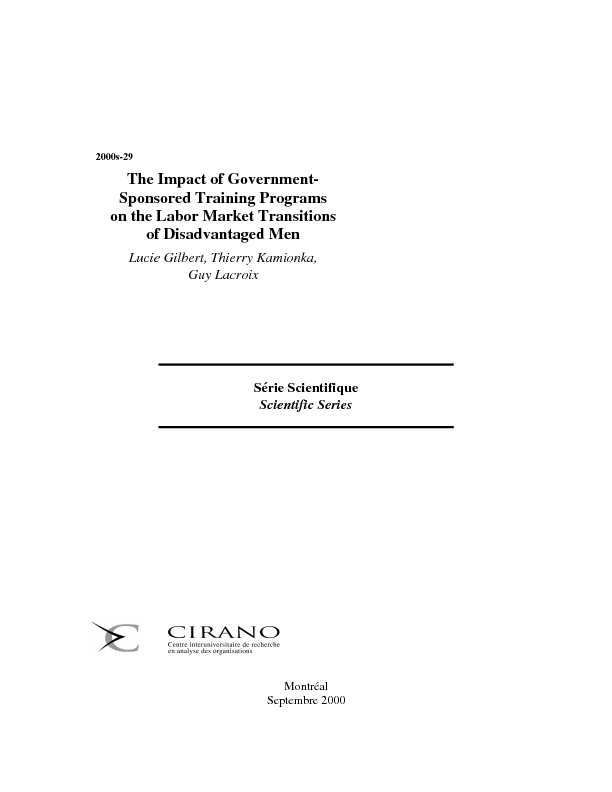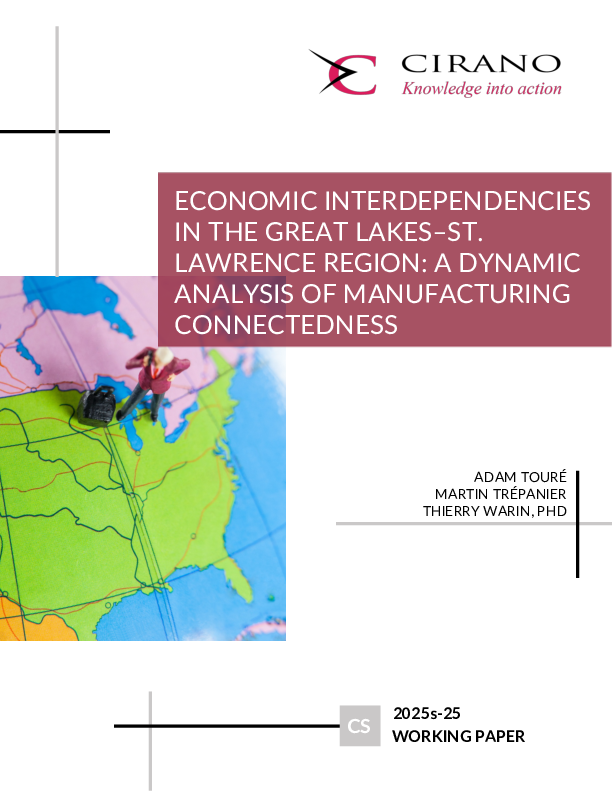The Impact of Government-Sponsored Training Programs on the Labor Market Transitions of Disadvantaged Men
The analysis focuses on the impact of government-sponsored training programs aimed at disadvantaged male youths on their labour market transitions. The richness of the data at our disposal allows us to recreate very detailed individual histories over a relatively long period. We use a continuous time duration model to estimate the density of duration times in as many as seven states, controlling for the endogeneity of an individual s training status. We investigate the sensitivity of the parameter estimates by comparing a typical non-parametric specification with a series of parametric two-factor loading models, as well as a parametric three-factor loading model. Our results show that young, poorly educated males who participate in welfare training programs do worse on the labour market than those who do not participate. On the other hand, participation in unemployment training programs provides them some benefits. In general, we find that duration times in any of the seven states considered are sensitive to variations in program parameters such as welfare benefits, policy variables such as the minimum wage rate, and in the economic environment as proxied by the unemployment rate.
[ - ]




